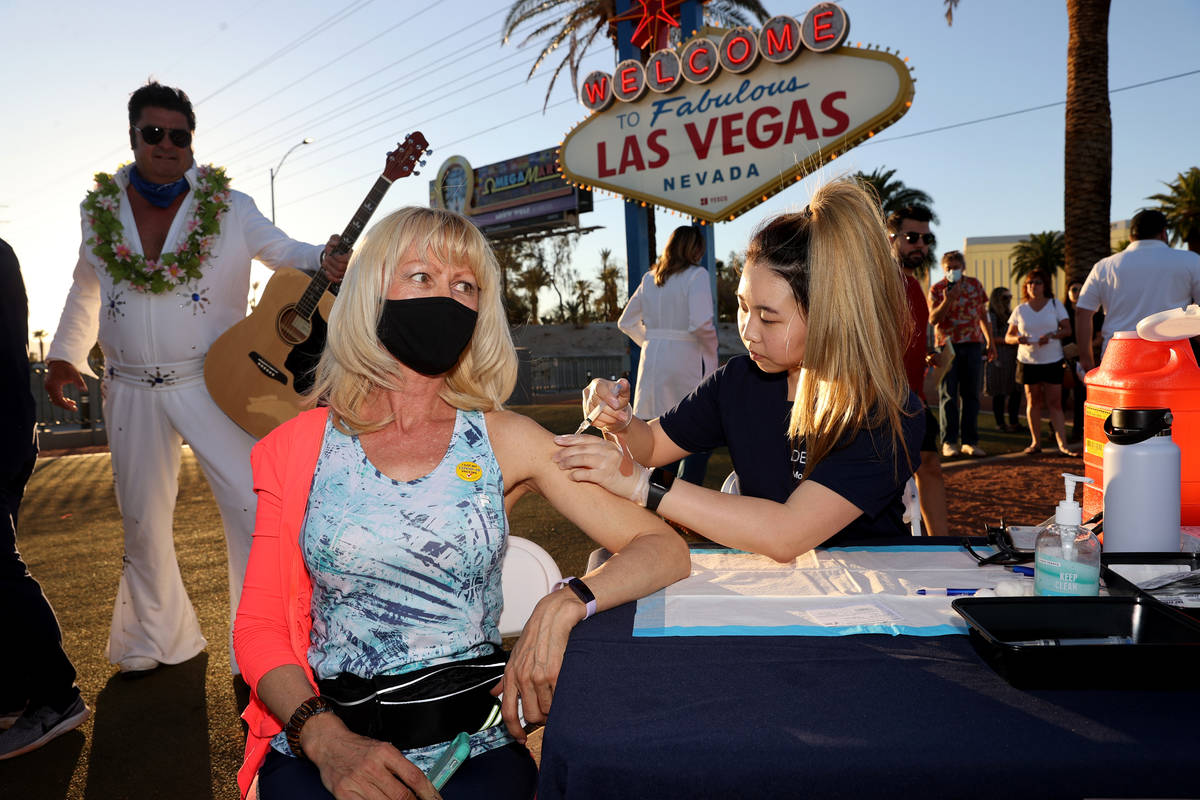VICTOR JOECKS: Nevada’s vaccine lottery has a chance of working
Once California decided to hold a vaccine lottery, it was inevitable that Gov. Steve Sisolak would bring one to Nevada.
On Thursday, Sisolak unveiled Vax Nevada Days, a phrase that won’t be going down in history as a marketing masterstroke. It’s a series of giveaways to incentivize people to take the coronavirus vaccine. Nevadans who have received at least one dose are eligible to win $5 million in prizes, including a $1 million top prize. There will be weekly drawings starting on July 8 with the grand finale on Aug. 26.
If you’re going to run a vaccine lottery, this is a well-designed program. Deadlines motivate people. The weekly prizes should generate ongoing publicity.
The success of vaccine lotteries, however, is mixed.
Ohio, which had the first lottery, is probably the biggest success story. After the announcement, those receiving a dose increased by more than 28 percent.
In many states, however, the number of vaccines given out declined after the lottery was announced. In California, 1.5 million people received their first dose 15 days before Gov. Gavin Newsom announced the lottery. That number was 772,000 in the 15 days after his announcement. In Colorado, weekly totals plunged by 37 percent after Gov. Jared Polis unveiled the lottery.
It’s possible those numbers would have fallen further without the giveaways, but those are hardly rousing success stories.
Nevada’s program may flop too. But that’s OK.
Nevada officials want to increase the number of people who are vaccinated. Over 50 percent of eligible Nevadans have received one dose of the vaccine.
Vaccinations, however, are declining. In early April, the high-water mark was more than 35,000 vaccinations a day. Now, it’s under 9,000 a day. These numbers are somewhat surprising. According to a Review-Journal poll, 73 percent of Nevadans are planning to get the vaccine.
This implies there’s a sizable group who want to be vaccinated but haven’t done so yet. State data shows more than 80 percent of those 70 and older are vaccinated. For those in their 20s, who face a much smaller risk, it’s under 37 percent.
Sisolak has tried lectures. He’s tried guilt trips. The state has a marketing campaign. It focused on getting the vaccine in order to do things, such as hugging friends. Not a very effective campaign when many unvaccinated people started living their normal lives long ago.
Those things weren’t working. Instead of doubling down, Sisolak is trying a new approach. Good. If you know Plan A will fail, it’s better to try Plan B even if it only has a 35 percent chance of working.
This needs to happen more often in government. For instance, if 60 years of pouring money into public schools hasn’t increased student achievement, try a different approach. School choice, which has a much more successful record than vaccine lotteries, is the obvious alternative.
Vaccine lotteries may be mathematically foolhardy, but as a town built on gambling should know, emotion, not cold logic, often drives decisions. It may even lead to more people getting vaccinated.
Victor Joecks’ column appears in the Opinion section each Sunday, Wednesday and Friday. Contact him at vjoecks@reviewjournal.com or 702-383-4698. Follow @victorjoecks on Twitter.


















